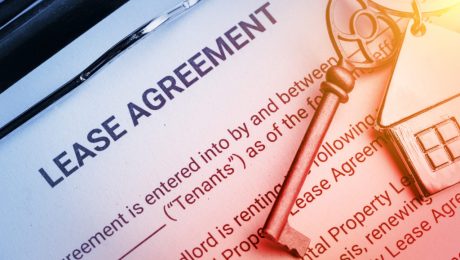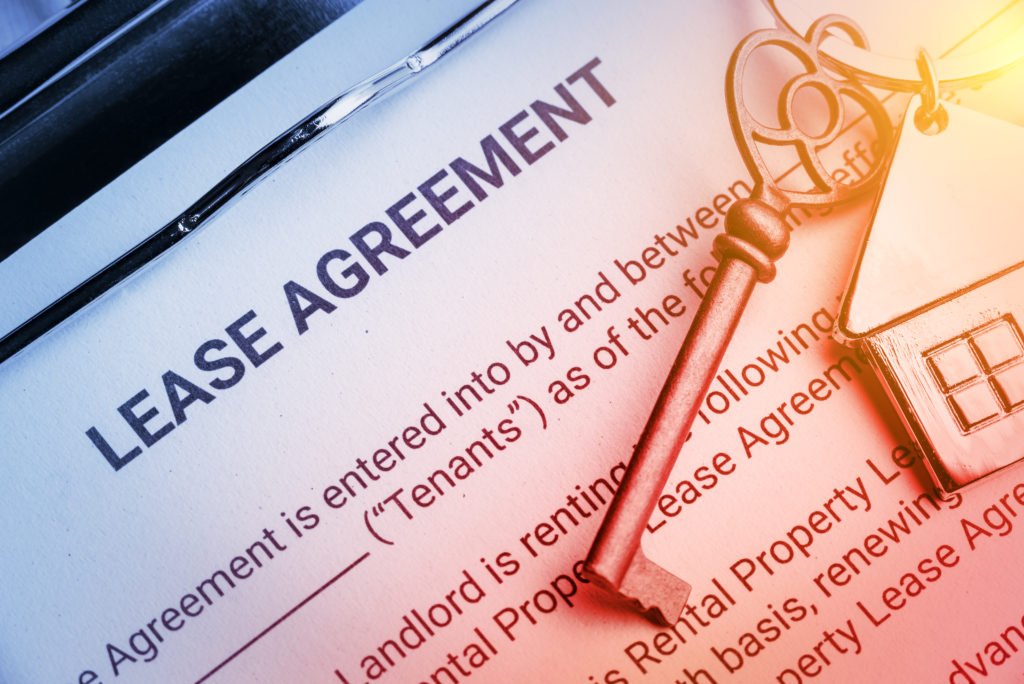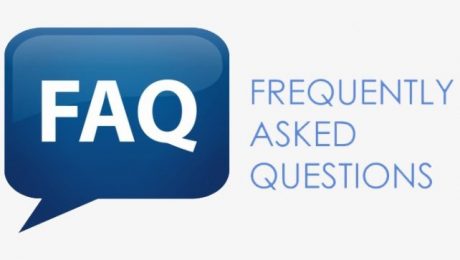Pros and Cons of Homeowner Association
Several localities offer residents the option to join a homeowner association. These associations can be quite helpful in resolving minor community issues. However, they may come with several drawbacks that need to be considered. To understand the pros and cons of joining HOAs, you must first understand what HOAs are, what they do, and how they affect homeowners.
What are HOAs? A question that you might be wondering. The term simply refers to homeowner’s associations, which manage a community for the benefit of its residents.
What does HOA mean in Housing?
Homeowners associations exist to manage residential communities, maintain curb appeal, and keep property values high. In addition to this, property owners’ associations manage residential communities. Home developers are responsible for initiating the association.
As a result of legal advice, the developer drafts the association’s governing documents. Bylaws, amendments, rules and regulations and articles of incorporation are among the documents.
Simply put, it would mean living in a house that is a part of an association. Although there are plenty of benefits to living in an HOA, it may not be suitable for everyone. Living in an HOA community, for example, gives you access to amenities you would not otherwise have.
What is the purpose of an HOA?
As soon as you move into your new home that is registered with the association, you become a member. The HOA’s governing documents are automatically applied to you as an HOA member. The documents outline the dos and don’ts of a homeowner. Rules like these help preserve property values and keep neighborhoods safe.
Managing an HOA entails taking care of the best interests of the community, enforcing rules, and setting the amount for dues. A review of the HOA’s governing documents is recommended before moving into a homeowner’s association.
Pros of HOA
Here are some pros of HOA that can help you make a decision.
1. HOAs are responsible for maintaining common areas
The aesthetic appeal of a well-maintained community contributes to the ease of living within it as well. A landscape that offers clean roads, trimmed trees, and blooming flowers, brings harmony and peace. The wellbeing of a community is important, and it is comforting to know that these services are in place.
The benefits of living in a community with an HOA include common community areas being maintained by the organization. Swimming pools, playgrounds, barbecue areas, and community centers are included.
The spaces can be enjoyed without having to worry about maintenance. In addition to maintaining the landscaping in front of each unit, some HOAs also take care of maintenance in the backyards of residents.
2. A consistent value for each property
Property values are a primary reason people buy an HOA home. Your board helps you protect your investment and ensures its value remains the same. It is the owners’ responsibility to maintain their lawns, homes, and personal property in accordance with community laws. This offers several benefits for the homeowner as well as the community. The members of the board live in the same community, and they are just as eager to see it thriving as you.
3. Complying with standards
Every homeowner must follow certain guidelines. Prior to signing on the dotted line, buyers should familiarize themselves with the governing documents. There isn’t much tolerance for unruly behavior in a typical association – from a wild party in someone’s backyard to disregarding architectural guidelines. The neighborhood has a board that mediates neighbor disputes and sets forth consequences when things don’t work out.
Cons of HOA
Let’s take a look at the cons of HOA.
1. HOA fees must be paid monthly
Residents of the community must pay HOA fees because the association maintains the common areas and exteriors of homes.
The fees for these amenities vary from community to community. In addition, HOA fees are not set in stone, so they are subject to change from time to time. When the association is unable to collect enough funds to maintain the community, the association may have to increase the monthly fee.
2. Failure to pay HOA fees can have serious consequences
Paying your HOA fees is an important part of living in a community. Fees must be paid by all residents of the community. If the HOA remains unable to collect enough money from residents, the property may not be able to be properly maintained. This can result in the association firing the property manager, causing the community’s appearance and condition to deteriorate.
3. Rules and regulations are enacted by the HOA
The HOA sets requirements for your home’s appearance. Ranging from what type of front door and windows you can have to decide what color your front door or shutters can be painted – the association has complete control over your home’s appearance. You may even be restricted in how much outside decor you can use and how many vehicles you can park in your community. If you violate the community’s rules and regulations, you could receive a fine.
4. Inadequate management
Poor management can lead to deterioration in some HOA communities. As a preventative measure, electing board members who have the association’s best interests at heart is the perfect way to avoid such a situation. In addition, many HOAs hire a management company to ensure responsibilities and duties are properly fulfilled.
5. Foreclosures and lien rights
A lien or foreclosure is always a concern when living in an HOA. There are certain HOAs that can place links on your property and then foreclose on it. The lien will only occur if your association due aren’t paid.
Conclusion
It’s important to consider the pros and cons of living in an HOA before making a decision. Paying monthly fees and adhering to the rules of an HOA community is necessary. You’ll also benefit from things like preserving your property value and being able to access well-maintained amenities (like landscaping). In the long run, you will benefit more from HOAs if you can tolerate the minor inconveniences they bring.
Stay tuned to Feeta Blog to learn more about Pakistan Real Estate.
Pros and Cons of Homeowner Association
Everything You Need To Know About Real Estate Investment In Pakistan
We often hear that real estate investing has a bright future in Pakistan – but sometimes it can cost you a huge fortune in the form of scams and frauds.
We know that in Pakistan real estate and real estate are spreading through many regions. Although each area is distinguished by its investment offerings and options, Karachi, Lahore and Islamabad are the three main cities in the country for real estate.
This article has all the important details about real estate in Pakistan, the investment benefits and factors related to real estate.
What You Need To Consider Before Making A Real Estate Investment In Pakistan
The following things should be considered:
Real Estate Investment Information

Sufficient real estate education is essential for real estate investors. The income from real estate investing needs to be well understood to you. Take a long time to get to understand every aspect of the property. In Pakistan, it is a growing industry and has a fast pace.
The design of a property must be high quality and smooth. It is important to have a realistic awareness of all the current developments in the real estate market in order to keep this unpredictable rate and become a profitable investor.
You can read about real estate for free from too many newspapers. Some mass media are most frequent:
- Newspapers
- Real estate YouTube channels
- Real estate books
- Real estate podcasts
- Real estate blogs
- Real estate television programs
Both of these resources are easily accessible and convenient. Take advantage of them and try to learn from them as best you can.
Follow Strategy

It’s no joke if we conclude that real estate is definitely possible for a lifetime cash flow. You just need a workable approach.
Spend some time planning an integrated plan for your investment in the property before you spend your hard earned money.
Would you like to invest in all kinds of assets or just stay in a niche, for example? Do you want to spend as an exclusive owner or do you want to participate? Would you like to develop your investments locally or would you like to grow your investment in other cities?
Such financial decisions will make or break your investment in your home. You will receive a decent income within a limited period of time if you have a good plan in place.
Select Redeem Properties

The fate of the draw is not to get the best property. For the perfect property, you need to be diligent and polite. Before buying real estate, ask about the land, rates in the area, country styles such as whether to buy in the apartment, house or store, details of facilities and the area.
Above all, make sure that it is accepted by the municipal planning authorities. Check the property carefully to make sure all property papers are accurate and complete, keeping your eyes open for any defects.
Buy Your Property

Once the preliminary research has been completed and your real estate investment options in Pakistan have been limited, it is time to buy your house. Consider all legal aspects and advise reviewing the accompanying transition and sales articles.
Furthermore, remember your plot or home location and construction level. These variables significantly influence how fast property prices rise. Often buy property authorized by the relevant government authority so that in some legal matters you do not miss out on investments.
Things to Consider For A Better Return On Real Estate Investment
Here are some moves you can make to achieve the highest investment speed and return:
Don’t rely on one resource

Don’t rely on just agents or insecure portals to create your buying or selling cost. Browse Zameen.com’s listings for the region of the property to see the latest trend in prices. Also, contact some agents to get the trading pressure and see what prices they offer.
Make sure your property is worth it

It takes some pretext to make this move. Contact one or two agents from the buyer’s point of view and ask for the cost for your preferred home. Call one or two additional agents from the seller’s point of view or ask about pricing. The fair market value is among the listed prices, as the purchase prices are usually higher than the sellers.
Go to the previous stages for token capital

If a contract has been terminated, the buyer collects symbolic money. This is the customer’s promise that the property is purchased and binds all parties to the contract. Sign money is usually a very small percentage of the total value of the land, preferably between 50,000 PKR and 100,000 PKR.
The receipt of a sign includes the full details of the property and shows whether a conflict occurs.
Less Volatile

Real estate portfolios do not face sudden changes such as the trading of stocks and bonds. Real estate is also very stable and rates are smoothly priced. This means that failure is less possible internally.
If you want to build your capital smoothly in a risky person, the investment in real estate is right for you.
Try to meet the other party face to face

If you are a buyer or seller, it will help facilitate the process by seeing each other face to face. You will also reliably confirm the ownership status and legal status of the property in this way.
If you are buying a home, make sure the assignment or transfer letter is reviewed by the owner’s NIC.
Double benefits

You may receive many benefits from a house or apartment. You can rent/lease your place, put your room on Airbnb, use it for your own home, and as the cost of the property grows, you can sell it. How incredible is it?
If you are looking for a great investment option in Pakistan, real estate is the ideal alternative for you.
Better Returns

Real estate offers you a reliably strong income. You can earn a monthly return of up to 20% on average. For example, you can sell it for RS.560.000 next month if you buy a property for RS.500.000 without doing anything as well. Staying at home, you get an additional Rs.60,000.
Tax Benefits

Investors usually earn property tax exemptions. You will, for example, get mortgage interest deductions. This is generally done by politicians to promote additional spending.
Possession

holding house representing home ownership
The complete ownership of the asset is one of the most significant and desirable factors inland. You will be wholly owned and no one will take your property from you when you buy a house, and you have all the legal rights to it.
You do not have perceptible assets and ownership of other types of investments such as bonds, mutual funds, and vice versa. That said, immobilization helps you rule your land.
Everything You Need To Know About Real Estate Investment In Pakistan
Rental Laws in Sindh: Comprehensive Guide for Landlords and Tenants
So, if you are renting or planning to rent your property sign a rental agreement in Karachi, Hyderabad or any other part of Sindh, today we will discuss everything you need to know about the rights and duties of both. parties in accordance with provincial laws.
Rentals in Sindh
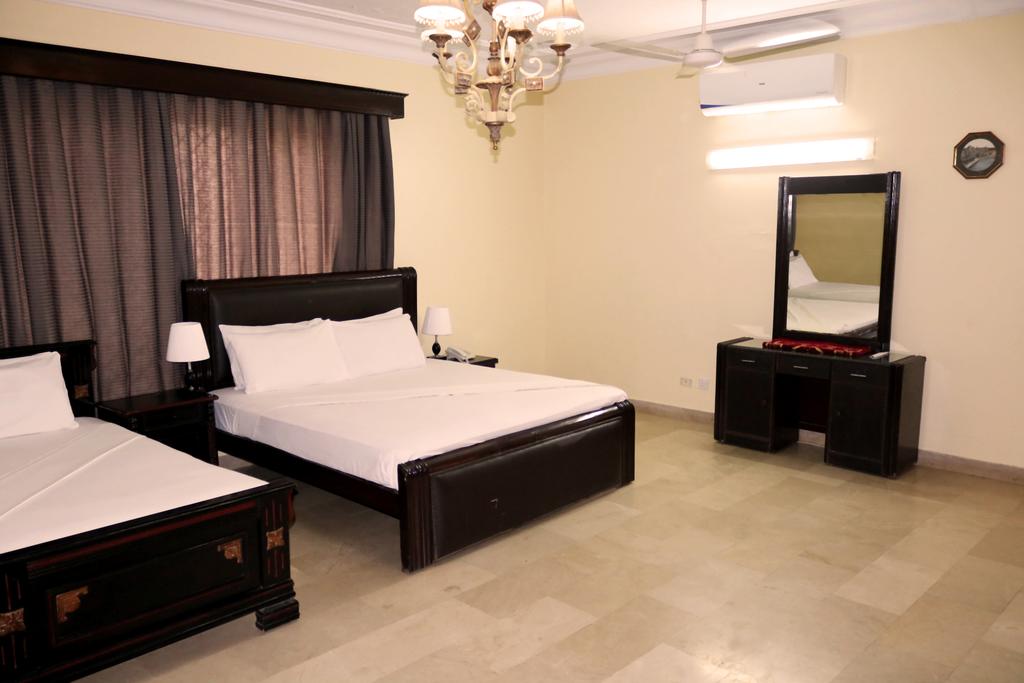
In Sindh, tenancy laws are under the umbrella of Sindh Leased Places Ordinance 1979. This ordinance defined the regulations on rental agreements to protect both the interests of tenants and landlords in almost all situations to avoid disputes and conflicts.
So let’s find out what our law covers about the official documentation and issues related to rental contracts in Sindh.
Rental agreement between country and tenant
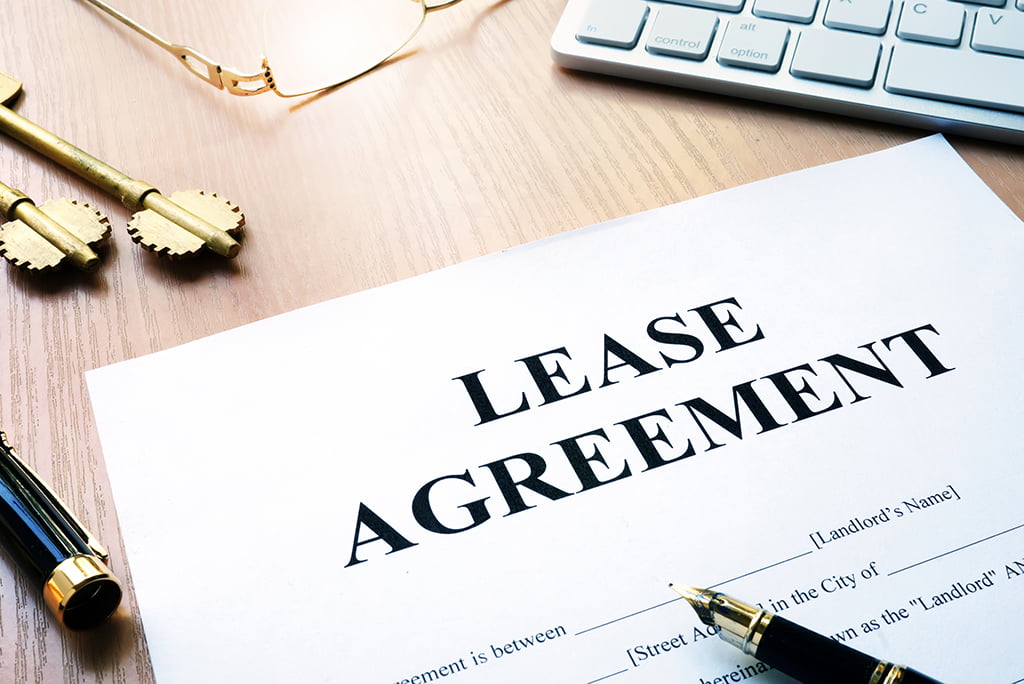
Rental lease agreement form on an office desk.
The rental agreement between landlord and tenant must be made in writing. The agreement must be signed by both parties and it must be attested by an official seal of the relevant authority associated with the jurisdiction where the property is located. You can also get this document certified by a First Class Judge or by any Civil Judge. These are the necessary conditions for the validity of a lease.
By law, the lease agreement must be renewed annually, otherwise, it would be considered invalid in court. The landlord is entitled to review the terms of the lease (within legal limits) and monthly rent after the renewal of the contract.
About the conditions related to Rent

The landlord must charge the rental amount, which has been mutually decided by both parties and clearly mentioned in the agreement. Although there is no specific date as the deadline for rental fees, however, according to general practice, tenants must be paid no later than the 10th of each month in Sindh.
The rental laws in Sindh ensure that the rental prices would be fair for tenants as well as for landlords. The laws protect the rights of both parties. According to the laws in Sindh, the rent of real estate cannot be increased by more than 10% annually. In addition, if the fair rent has been determined, it cannot be increased for a period of three years.
Here are some of the main points on the basis of which a fair lease of any particular property is determined.
- The rough analysis of the monthly rents for similar real estate located in the same or adjacent neighborhood.
- The increase in construction costs, repairs and maintenance costs.
- If there is any new tax after the start of the lease.
- An increase in the value of the leased property on the basis of the government-imposed property taxes.
The owner cannot interrupt amenities and services

The law does not allow the landlord to discontinue any of the services and amenities including but not limited to service connections such as electricity, gas, or water unless this is announced in advance and decided with the tenant. However, the interim service providers may terminate such facilities on the basis of their organizational policy. Other relevant authorities may also terminate these amenities and facilities under any specific circumstance.
Maintenance is important

Repair and maintenance of the leased property is the responsibility of the landlord. However, if the owner is unable to do so for any reason, the tenant is entitled to perform the required maintenance.
In such a case, the landlord must pay the maintenance costs. The tenant may deduct it from rental costs if mutually agreed. However, the tenant pays documented proof of expenses incurred for the repayment.
Expulsion Laws in Sindh
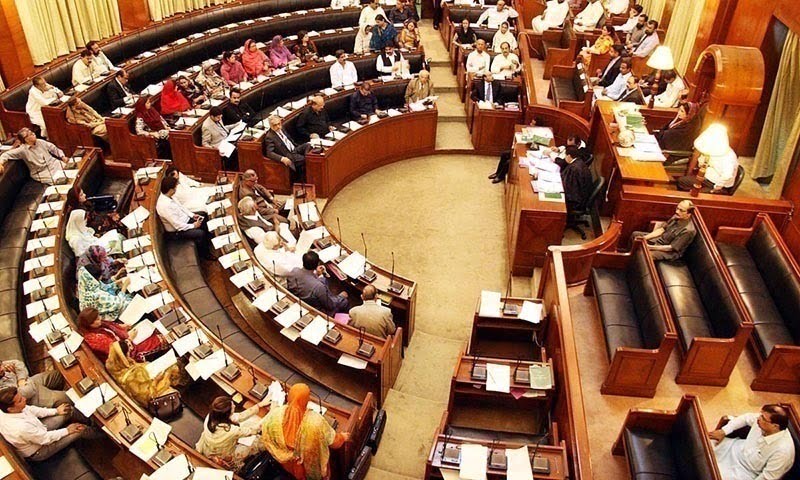
Upon successful completion of the lease agreement, the landlord has the right to evict the tenant on the basis of legal eviction conditions. Eviction terms are almost identical across Pakistan. However, Sindh Rented Locises Ordinance 1979 has a number of additional clauses and requirements that must be met to avoid legal complications. The central idea of the additional clauses is listed below:
- The ownership of the leased property was transferred or sold to another person.
- If the tenant causes significant damage to the property, that could impact its property.
- If a major renovation became necessary for the area or reconstruction was forced by the modifications in the building regulations. However, once the reconstruction is complete, the tenant can re-apply for the assets.
- If the owner and their legal heirs want to use the site for their personal use, they are free to vacate the property after consulting the legal authorities.
- If the owner of the rented premises is a widow or orphaned minor or elderly person who is over 60 years of age. And this fact was evident when the property was rented, and the said clause for eviction became invalid.
- Always remember that whatever the cause of eviction, whenever a landlord wants to evict tenants, they must write a request to the relevant authorities in accordance with the law.
Rental Laws in Sindh: Comprehensive Guide for Landlords and Tenants
Private Property Financing Options: Lender’s Guide
Most real estate borrowers run to traditional lending institutions to finance the properties they are looking to buy and sell. Banks, government support housing, and insurance companies are usually the preferred companies for real estate.
However stringent requirements and the long waiting period have become the main obstacles for most borrowers. And, for buyers who are looking to buy a great property, time is of the essence. Alternative financial arrangements aim to stifle these challenges. With fewer rings to skip, real estate investor-borrowers are more than willing to take advantage of unconventional lending options.
If you are an inexperienced real estate investor, I need to get acquainted with other loans, especially if you have outstanding loans from traditional financial companies. Read on to know more about private financing and hard money lending, as well as the pros and cons for investor lender and investor borrower. You read that right. In private financing, the lenders and borrowers can both be considered as investors.
What is private real estate financing?

It takes a lot of money to invest in real estate. As an investor, you can turn to either conventional or alternative lending methods as it suits you best. Private financing is one of the ways you can secure an investment. Often, private financing depends on the relationship between the lender and borrower. Most often, however, private financing for real estate can be in the form of private equity funds.
The main drawback of private financing is its flexibility. It can be used to finance a variety of real estate; from buying rental property to investing in a home, or as additional financing for new real estate construction. Private lenders also usually require fewer documents and a more lenient control and approval process.
What is hard money lending?
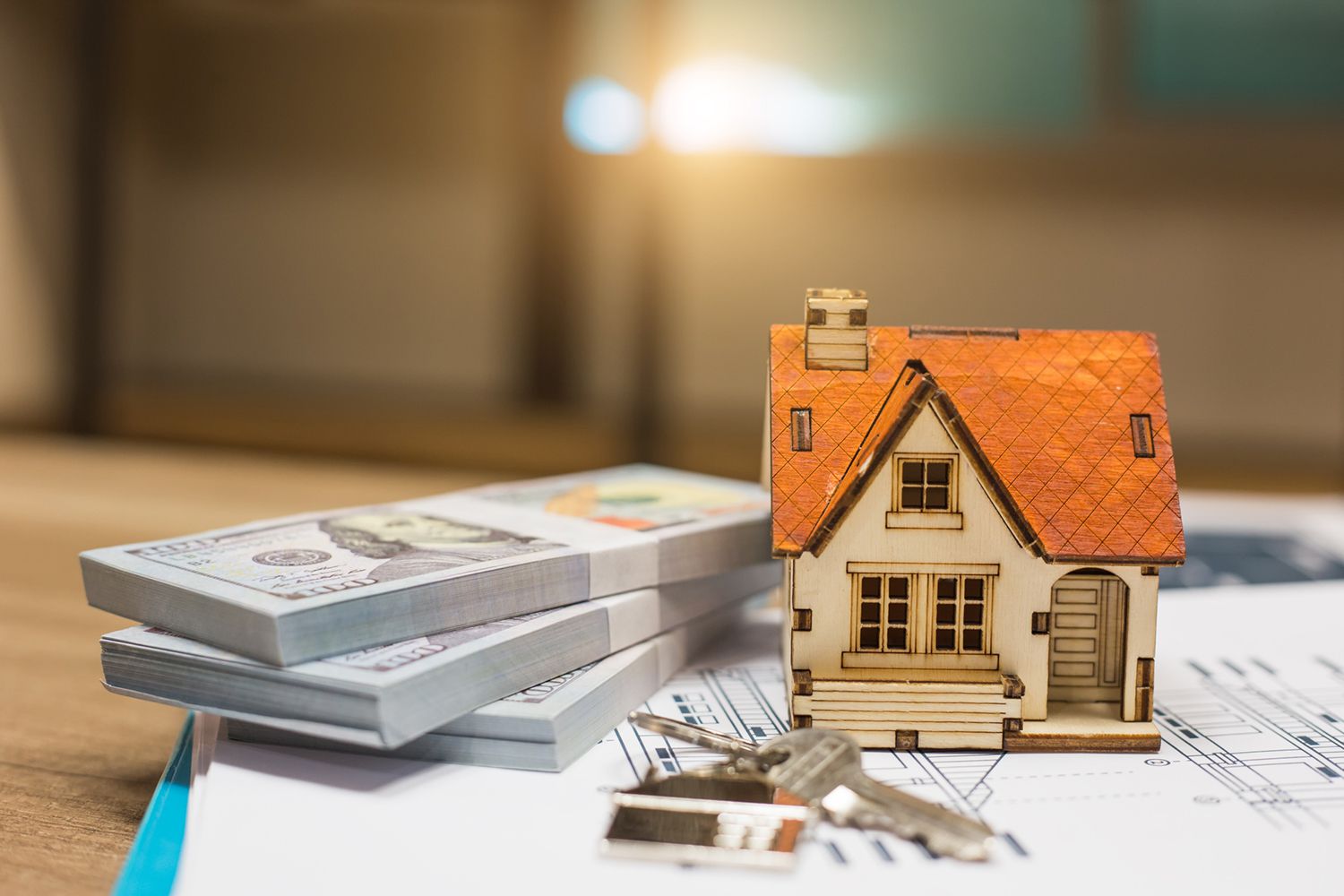
As a type of private real estate financing, hard money lending is an alternative financing plan that allows borrowers to use property as a loan guarantee. This means that the property used as collateral can dictate how much the lender can borrow, rather than alternative lenders relying on the borrower’s credit history and other circumstances.
Which leads you to the question; do you get a difficult loan? The truth is that it may not be suitable for anyone. Hard money lending works best for investor borrowers who do not have impressive credit but own valuable property. Placing property as collateral allows a borrower to access loans typically limited to those with impressive credit ratings.
Similarly, a property owner at risk of having property foreclosed may also use this unconventional real estate financial plan.
As with other private financial methods, hard money lending allows investors to participate in the real estate industry even without going through the lengthy processes of buying homes, or keeping and maintaining a property to be included in their investment portfolio.
A private lender must set criteria for qualified borrowers, and like traditional lenders, you may also be turned down for a loan.
What are the benefits and risks of private real estate financing?
Using private money to lend to a real estate borrower comes with its risks and benefits. Below is a list of a few points:
Advantages for the private loan investor

It’s a great way to earn a passive income. You don’t have to go through all the hassle of finding, buying or managing rental properties and other types of real estate. You just need to raise money to lend to the borrower and collect regular payments.
Due to the more lenient approval process, high-risk borrowers are allowed access to additional financing. This means that higher interest rates are imposed on private cash loans compared to traditional lenders. Investors can also enjoy higher returns.
- Who can become a private financial lender?
Being a private financial lender is ideal for the following categories of people:
- A real estate investor who wants to expand their portfolio
- A professional who has a high income career
- An individual who has considerable money reserves
- Emeritus seeking passive income
Generally speaking, anyone who is able to raise good money can lend their private money to borrowers. If you want to become an investor, have someone you can trust, such as a family member, as your first borrower.
However, it is not without its drawbacks. For example, the borrower you have chosen to finance may not be as financially savvy as initially thought. And as a result, you may lose instead of making money.
Additionally, the time and effort you have left to find and maintain real estate should be dedicated to research on real estate investors, and other important factors on the loan process.
Benefits for the private lender

As mentioned, private lenders generally have more lenient examination and approval processes, allowing borrowers to have better access to real estate financing. And, while alternative private financiers have their own criteria for ideal borrowers, they are nevertheless less stringent than others.
- What type of borrowers can take advantage of private financing?
Additionally, a real estate borrower who is planning or in the middle of the following projects looks more attractive to private lenders:
- House fins: If you are a borrower-investor who buys cheap houses and repairs it to resell at a higher price, you will find that private lenders save lives. Conventional lenders usually do not consider outdated properties and require too much time before they can release the money.
- Rental investment investors: Investors who need additional financing to rehabilitate rental property can also access private money. Look for a lender who wants to have a steady stream of passive income.
- Developers: These types of investors-borrowers are looking for useless land where they can build residential or commercial real estate. Because time is money in construction, these types of borrowers may not be willing to waste the lost time and opportunity waiting for monetary release. A private financier is a very tempting proposition.
Risks for the borrower

Businessman halting the domino effect inserting his hand between falling and upright wooden blocks
The only foreseeable risk to taking advantage of private financing is that you may not be able to pay due to the high interest rates. However, if you need money quickly and for emergency purposes, such as when you face foreclosure, it won’t matter much.
Do you have private funding?

Miniature model house standing on a heap of dollar bills. Photo with clipping path.Some similar pictures from my portfolio:
Private financing is an alternative way to access finance for your real estate. The smoother and overall faster processing is tempting, but it can literally cost.
If you have a negligible credit record but need money for planned investment, quickly; consider asking lenders for private money.
For the latest updates, please stay connected to Feeta Blog – the top property blog in Pakistan.
Private Property Financing Options: Lender’s Guide
Answers to Commonly Asked Real Estate Questions
Unlike Pakistan, many people in foreign countries sell and buy property through lawyers. Hiring a lawyer yourself is a very mobile process, but ultimately it reduces the risk of fraud and helps avoid legal complications. We in Pakistan rarely go to lawyers for property. We either do it ourselves or do it with inauthentic real estate. This practice leads to fraud and illegal deals many times over.
The real estate gurus always recommend involving a practical lawyer to take care of the legalities involved in real estate or at least an authentic real estate agent to completely guide you through the process. This will not only help you avoid potential fraud but will also help you secure your investment.
The number of complications in real estate is very high. That’s why we always recommend our readers to have a basic knowledge of real estate-related things and terminology.
Today we will discuss some of the most frequently asked questions about the real estate market.
1) What is Shajra?
A detailed map of an area with land divided into pieces and each block is labeled with a specific number is called Shajra. Shajra includes all the details of each khasra, such as its size and location.
2) What is Khasra?
Khasra is that particular piece of land of Shajra that has been labeled with a specific number.
3) What does fard e milkiyat mean?
Fard e milkiyat is a registry of rights/registry haqdaran-e-Zameen. It is supported by the government authorities to determine the legal owner of the land and to keep a register of real estate rights.
4) What does Tattima Registry mean?
Register Tattima means additional sales test of hasasra. Means an additional sales test of a particular piece of land.
5) What is Baye-Nama?
The Baye-Nama or Register sales test is the document that creates a title in real estate.
6) What are some laws on the real estate sector of Pakistan?
Some of the laws in the constitution of Pakistan that deal with real estate are the following:
1) Transfer of Property Act, 1882.
2) Land Revenue Act, 1967.
3) Stamp Act, 1899
4) Registration Act, 1908.
In addition, always consult an attorney for real estate law counseling.
7) Can we use the farmhouse as an office space?
It is illegal to use a farmhouse for commercial purposes. However, there is an exception for some companies such as IT services, which can be operated from residential areas.
8) Do we inherit the law in Pakistan?
Yes, Pakistan has several inheritance laws that apply depending on religious affiliations. For example, Islamic personal laws are for Muslims and people belonging to other religions have a hereditary law according to their religious leaders.
9) Can I buy a property in Pakistan as a foreign Pakistani without a visit?
Yes, a foreign Pakistani can easily buy property in the country without visiting Pakistan.
10) Do I have to record the transfer of real estate every time?
Yes, every transfer of real estate must be registered and delivered. It can be done only with a registered sales document.
11) What are the necessary documents to legally own a property?
The only document you need is a document to control the delivery of property in your favor. This may include other documents such as a deed of sale, a letter of receipt and a certificate of sale.
12) What does proxy mean?
A prosecutor is a powerful form, assigned to an agent of the principal to perform an act and deed for and on behalf of the principal. A prosecutor may also receive from person A to person B to appear before the court, tribunal, and authority to complete any real property or transaction. When it is allowed to authorize certain transactions, it is called an attorney general and it must be registered.
13) Can a person with a prosecutor’s hand over property on their behalf?
No, the person who is appointed prosecutor on your behalf has a fiduciary duty to act in your interest and do what you would do yourself, if possible.
14) Can I revoke my power of attorney?
Yes, you can revoke your proxy at any time.
15) Is my prosecutor for life?
A prosecutor can be for life and in that case it will end after death.
16) In which case is a prosecutor suspended?
As mentioned in the previous question, it can be canceled at the death of executioners and it can be canceled by the executioners in his life.
17) Can a mortgaged property be sold?
No, real estate mortgaged property cannot be sold.
18) What is stamp duty?
Stamp duty is essentially a government tax on the transfer of property.
19) Who has to pay stamp duty?
The buyer must pay the stamp duty. However, in some cases, sellers also undertake to pay for it themselves.
20) Which authority holds the country record in Pakistan?
The Department of Revenue of the District Administration is responsible for maintaining land records. They also decide the boundaries of property and possession.
21) How can I sell a property as a co-owner?
You may sell the property as a shareholder, but you may sell only the scope of your share.
22) How can we differentiate a will from a gift?
A will is only after the death of the creator, while a gift can be made for a lifetime. An owner is entitled to give all his property to the lawful heir during his lifetime, but he cannot do the same by will. However, a homeowner may give a will to give a third of his property to someone who is not the legal heir. And if this favor is done for a lawful heir, it requires the consent of all other lawful heirs.
23) What are the essentials of a gift?
There are basically three essentials of a gift:
1) Offer from the donor
2) Acceptance of the person to whom the gift is received
3) Transfer of possession
Also, if you want to read more informative content about construction and real estate, keep following Feeta Blog, the best property blog in Pakistan.
Answers to Commonly Asked Real Estate Questions
Real Estate Investment on Installments vs Cash in Pakistan
Real Estate Investments on Paying Against Money in Pakistan
Real estate investments transferred and real estate for sale with cash are the two options available to you when you plan to invest in real estate in Pakistan.
We can further classify these two options as below:
- Possession plots about money.
- Possession plots of money.
- Ownership Plots in payments.
- Real estate built with money.
- Buildable buildings (houses, apartments, shops) in installments.
Generally buying real estate is a facility for those who cannot afford the prices upfront. However, if you plan to invest, you can use it as well as leverage and invest small amounts to get huge income. So even if you have the money available with you, it may be better to invest smartly and pay in installments.
Fees against Monetary Investments

Before we proceed with the case study, we must first understand the general advantages and disadvantages of cash versus real estate.
Advantages of cash against real estate investments in arrears
- The first is obvious, you can buy a property even if you don’t have the full payment, thus making it easier for you to save and pay as you go.
- You get taxed because real estate prices go up over the entire property and not just for what you paid.
- It usually offers more flexibility, as you can buy more properties with the same money and then liquidate them in part at a profit.
- Buildable buildings (Houses, Dwellings) in parts are usually available at a price less than or equal to similar owned real estate.
- You can take advantage of Dollar appreciation if it occurs during that time period.
Disadvantage of cash against real estate arrears
- Plots in installments may be a little more expensive than in cash. Usually, plot payments cost 10 to 20% more than buying a similar property in cash.
- Buying cash-owned property is safer than investing in property in installments, which is yet to be developed.
The comparison

If you do not have the money, obviously it is your choice, all you have to do is buy a property after the payment. However, if money doesn’t limit you, it’s time to evaluate all the options to find what works best for you.
Possession plots on Cash

When you have money, you can certainly find many opportunities waiting for you in the market. You can also take full advantage of speculative trading and enjoy the market spikes as recently seen in 2020-21 in DHA Lahore.
However, you will not always succeed and some losses are always on the horizon. Buying a plot in a mature area that has already reached its full potential is like putting your money into a gutter.
Landless plots for money

Buying an indispensable property is not very economical as such. The thing is usually that most developers will only offer a 10% discount on cash payments. This is much less in my opinion and it is much better to pay delivery in a period of 3 years than to buy it in cash. Obviously, if the delivery period is less or about a year then it makes sense but not otherwise.
Plots on Episodes

There are various ways you can take advantage of buying plots for free. You can improve your position and invest a lot. As well as speculative trading, you need to form a plan to include:
- Expected appreciation of the plots in the near future.
- How long can you keep the real estate without draining all your money?
- Terrible sales planning for profit/reward.
- Failure plan if your plan does not work.
Everything seems good, yet a problem with such investment is that in underdeveloped societies takes a decade or more to fully develop. However, if you are a smart investor, you may be taking advantage of investment / speculative bubbles within this period.
Real estate built with money

This is always a good option to get a mature property to generate solid cash flows. Rental income in my opinion is the mother of all real estate in Pakistan and in the world. However, many people cannot do it due to financial constraints, as built profits are usually more expensive. That is why speculative investments in plots continue to remain the most popular real estate investment in Pakistan.
However popular does not mean success either. The success rate of people who have invested in rental income-generating real estate exceeds that of those who have invested in plots.
Buildable real estate in installments

In addition to just buying plots, you can also invest in construction projects for payments. These include houses, shops, apartments, etc. Such investments have some additional advantages such as:
- Residences, houses or shopping malls are usually made in places already mature. So technically you are investing in an already mature asset.
- The maturity of a construction project is usually less than that of complete social development. It takes between 3 and 6 years for a construction project to fully develop and mature, which is much better than a society that will last more than a decade.
- The price of real estate is gradually increasing according to a fixed pattern as the construction progresses. It’s easier to plan and profit from an outing.
- The product of your investment is an asset that can be rented out and used to increase your passive income.
The only major drawback I see in this type of investment is that sales are usually slow compared to plots. This is due to the fact that these are usually end-users after a natural gain and do not serve the purpose of part-time investors looking for speculative bubbles. However, this aspect is also improving as the construction trend continues to grow across Pakistan and investors are getting more and more engaged.
The winner won a chicken dinner

The winner in my opinion is construction projects in installments followed by rental income-producing real estate in cash. The thing is, real estate adds capital gain in access by about 50% during its construction. In addition, the end result will produce a property that generates cash flow as opposed to plots and you will not fail to raise money as so many people did between 2016 and 2020 who invested in plots.
The past has taught us one thing, conspiracy investments in Pakistan have long periods of zero to negative growth. If you get stuck in one, you’ll have to wait half a decade before you can even think about liquidating your asset.
The secret to our success is the loyalty and trust we share with our investors, we win when you win.
Also, if you want to read more informative content about construction and real estate, keep following Feeta Blog, the best property blog in Pakistan.
Real Estate Investment on Installments vs Cash in Pakistan
Action Against Real Estate Tax Escaper [2018]
The people who have invested in real estate Federal Board of Revenue prepared their list over the last two years despite the fact that according to a news source they have not paid taxes against these real estate transactions, The 16000 people registered have financed income worth rupee in the real estate market. The 80,000 real estate transactions have been listed through the last two years according to the statistical analysis by Pakistan Revenue Automation Limited. According to PKR exchange rate, PKR 800 billion sum is the value of these transactions, although the real estate is much larger than these. The number of people among the 16000 has country tax numbers, while the rest are not part of the tax network to know.
Read: Exploding real estate sector contributes only 23 billion in taxes
The Pakistan Income Automation Limited has documented all property written financial records made for net assets costing more than 4 million PKR so it is important to note here that to document the real estate sector, therefore the government has declared it mandatory. that only taxpayers can buy property more expensive than PKR 5 million.





